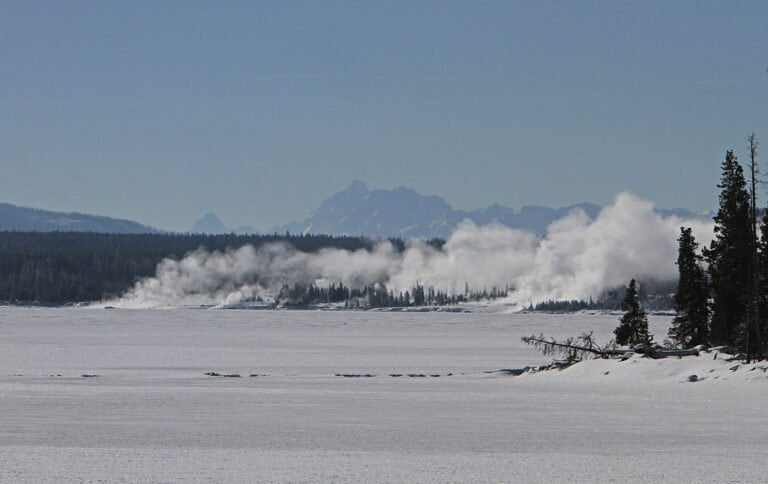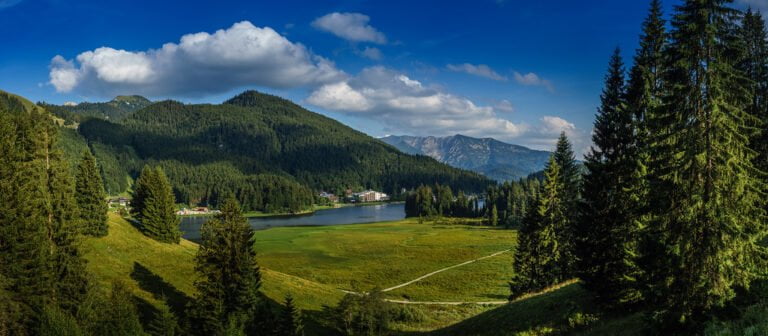How Safe Is Kyrgyzstan for Tourists?
Kyrgyzstan's complex political climate, high crime rates, and challenging infrastructure pose significant safety concerns for tourists. Petty theft, scams, and corruption are common, with pickpocketing and bag snatching prevalent in crowded areas. Female solo travelers face unique challenges, requiring extra caution and modest dress. Transportation safety is also a concern, with unpaved roads and untrained taxi drivers. Natural disasters, including earthquakes and landslides, are risks to be aware of. To navigate these challenges, visitors must be informed, vigilant, and prepared. As you venture into the unknown, discover the essential tips and insights that will help you stay safe in this fascinating yet complex country.
Understanding Kyrgyzstan's Political Climate
Amidst the backdrop of a tumultuous post-Soviet era, Kyrgyzstan's political climate remains a complex tapestry of traditionalism, authoritarianism, and fledgling democratic reforms. The country's struggle to balance modernization with cultural heritage has led to a precarious power dynamic, where tribal and clan affiliations often supersede institutional authority. The 2010 uprising, which ousted President Kurmanbek Bakiyev, marked a significant turning point, as it paved the way for a new constitution and parliamentary elections. However, the country's political landscape remains volatile, with ongoing tensions between the government and opposition forces. As a result, tourists should be aware of the country's sensitive political environment and exercise caution when engaging with locals or discussing sensitive topics.
Crime Rates and Types of Crimes
Frequent outbreaks of petty theft and opportunistic crimes, often targeting foreigners, have become a persistent concern in Kyrgyzstan's urban centers. Pickpocketing, bag snatching, and robbery are common crimes, particularly in crowded areas and tourist hotspots. Criminals often operate in groups, using distraction techniques to steal valuables. Additionally, there have been reports of scams, such as fraudulent taxi services and fake police officers, targeting unsuspecting tourists. Visitors must remain vigilant, keep valuables secure, and avoid traveling alone at night. By taking necessary precautions, tourists can minimize their risk of falling victim to these crimes and enjoy a safe and enriching experience in Kyrgyzstan.
Safety in Bishkek and Osh
As the country's capital and largest city, Bishkek, and Osh, the southern hub, are essential destinations for travelers. While both cities have made strides in improving safety, petty crimes such as pickpocketing and scams remain a concern. The effectiveness of police presence in these urban centers is a vital factor in maintaining a secure environment for visitors.
Petty Crime Rates
Petty crime rates in Kyrgyzstan's two largest cities, Bishkek and Osh, are a persistent concern for travelers, with pickpocketing, scams, and thefts frequently targeting unsuspecting tourists. Be cautious in crowded areas, such as markets and bus stations, where thieves often operate. In Bishkek, the State Historical Museum and Ala-Too Square are hotspots for pickpocketing, while in Osh, the bustling Jayma Bazaar is a common target for scams. Additionally, tourists have reported thefts from hotel rooms and hostels, so verify you lock your doors and keep valuables secure. By taking simple precautions, such as keeping a close eye on your belongings and being mindful of your surroundings, you can minimize the risk of falling victim to petty crime in Kyrgyzstan's urban centers.
Police Presence Effectiveness
The presence of police in Bishkek and Osh is a double-edged sword, with a visible law enforcement presence in tourist areas providing a sense of security, but also raising concerns about corruption and bribery. While their presence can deter petty crimes, some tourists have reported being stopped and asked for bribes or "fines" for dubious offenses. In Bishkek, the police are generally more professional, but in Osh, there have been reports of extortion. It's essential to remain calm and polite when interacting with the police, and to know your rights as a tourist. In case of an issue, it's best to seek assistance from your embassy or a trusted local guide.
Traveling Alone as a Woman
Female solo travelers in Kyrgyzstan often face unique challenges, from curious stares to outright harassment, making it essential to exercise extra caution when traversing the country's rugged landscape and traditional societies. As a woman traveling alone, it's crucial to be mindful of your surroundings, dress modestly, and avoid traveling alone at night. Here are a few tips to keep in mind:
- Dress conservatively: Avoid revealing clothing, especially in rural areas, to minimize unwanted attention.
- Learn basic Kyrgyz phrases: Greetings and basic phrases can go a long way in showing respect and building connections with locals.
- Stay connected: Keep your phone charged and accessible, and consider purchasing a local SIM card for emergency situations.
Road Safety and Transportation
As you navigate the rugged landscape of Kyrgyzstan, the thrill of adventure can quickly turn to frustration on the country's often-treacherous roads. With potholed highways and winding mountain routes, it's essential to be aware of the road conditions ahead to guarantee a safe and enjoyable journey. From taxi safety concerns to public transport options, understanding the complexities of Kyrgyzstan's transportation network is vital for a hassle-free trip.
Road Conditions Ahead
Roughly 95% of Kyrgyzstan's roads are unpaved, making navigation a challenging task, especially for foreign visitors unaccustomed to the country's rugged terrain. The roads are often narrow, winding, and poorly lit, which can be intimidating for even the most seasoned travelers.
- Dirt roads: Many roads are little more than dirt tracks, making it difficult to maintain speed or traction, especially during rainy or snowy conditions.
- Steep mountain passes: Kyrgyzstan's mountainous landscape means that roads often traverse steep, hairpin turns, which can be perilous for passengers and challenging for drivers.
- Livestock encounters: It's not uncommon to encounter livestock, such as cows or horses, roaming freely on the roads, which can be a hazard for drivers.
Despite these challenges, the scenic beauty of Kyrgyzstan's landscape makes the journey worthwhile.
Taxi Safety Concerns
Nearly 70% of taxi drivers in Kyrgyzstan lack formal training, making them a significant contributor to the country's road safety concerns. This lack of training manifests in reckless driving, disregard for traffic rules, and a general lack of situational awareness. As a result, tourists are advised to exercise extreme caution when hailing a taxi. It's essential to agree on the fare beforehand, verify the driver is sober, and buckle up. Additionally, consider using reputable taxi companies or ride-hailing services that vet their drivers. Be prepared for a potentially bumpy ride, and keep your valuables secure. While taxi safety concerns are a reality, taking these precautions can minimize the risks and guarantee a safe journey in Kyrgyzstan.
Public Transport Options
Beyond taxis, Kyrgyzstan's public transportation network comprises an array of buses, marshrutkas, and trains, each with its own set of safety considerations and cultural quirks that visitors should be aware of to navigate the country efficiently. When using public transport, be prepared for:
- Crowded and chaotic bus stations, where vendors and locals jostle for space amidst a cacophony of horns and revving engines.
- Rusty, rickety marshrutkas, which may lack seatbelts or functioning windows, but offer a thrilling, if not hair-raising, ride.
- Slow, Soviet-era trains, which chug along at a snail's pace, offering breathtaking views of the countryside, but limited amenities.
While public transport in Kyrgyzstan can be an adventure in itself, exercising caution and flexibility will help you navigate the system safely and enjoyably.
Natural Disaster Risks and Precautions
Kyrgyzstan's rugged terrain and geographic location make it prone to various natural disasters, including earthquakes, landslides, and floods, which can occur with little warning and have devastating consequences. The country's mountainous regions are particularly susceptible to landslides, which can block rivers and cause flash flooding. Earthquakes are also a significant threat, with the capital city, Bishkek, located near a major fault line. To prepare for these risks, tourists should stay informed about weather forecasts and local news, and familiarize themselves with evacuation routes and emergency procedures. It's essential to exercise caution when traveling to remote areas and to follow local guidance during times of natural disaster. By taking these precautions, visitors can minimize their risk and enjoy the country's breathtaking natural beauty.
Dealing With Corruption and Bribery
Corruption and bribery are pervasive issues in Kyrgyzstan, with many government officials and law enforcement officers expecting or soliciting bribes in exchange for their services or favors. As a tourist, it's essential to be aware of these practices to avoid being taken advantage of. Here are some scenarios to be cautious of:
- Traffic stops: Be prepared for police officers to pull you over and demand a "fine" on the spot, which often goes straight into their pocket.
- Customs and immigration: Be wary of officials asking for "extra" fees or "gifts" to facilitate your passage through customs or immigration.
- Everyday transactions: Some vendors or service providers might quote you an inflated price, expecting you to negotiate or offer a bribe.
Remember to stay calm, polite, and firm in your interactions. If you're unsure or uncomfortable, seek assistance from your tour operator, hotel, or local authorities.
Health and Medical Care Concerns
As you navigate the complexities of Kyrgyzstan's social landscape, it's just as vital to prioritize your physical well-being, as the country's healthcare system and medical infrastructure may not meet the standards you're accustomed to. Medical facilities, particularly outside of Bishkek, are often under-equipped and under-staffed. Availability of medication and medical supplies can be limited, and emergency services may not be readily accessible. It's essential to take preventative measures, such as staying hydrated, wearing sunscreen, and getting vaccinated before arrival. Additionally, consider purchasing travel insurance that covers medical evacuations, should you require urgent care. By taking these precautions, you can minimize health risks and safeguard a safe and enjoyable journey through Kyrgyzstan.
Regional Safety Differences
While the capital city of Bishkek is generally considered safe, with a strong police presence and modern amenities, the rural regions and border areas can be a different story, with higher crime rates and a greater risk of petty theft and scams. The contrast is striking, with bustling markets and historic sites giving way to rugged landscapes and isolated villages. Here, the landscape itself can be a challenge, with steep mountain roads and limited infrastructure.
- Remote valleys where nomadic herders graze their livestock, far from the reach of authorities.
- Mountain passes where altitude sickness can be a real concern.
- Isolated border towns where smuggling and black markets thrive.
Regional differences in safety can be significant, and it's essential to be aware of these variations when planning your trip to Kyrgyzstan.
Staying Safe in Rural Areas
In rural Kyrgyzstan, where the vast steppes and snow-capped mountains can be both breathtaking and unforgiving, a combination of common sense, cultural awareness, and preparation is key to staying safe amidst the rugged beauty. Be mindful of altitude sickness when trekking in high-altitude areas, and verify you have adequate supplies, including water, food, and a first-aid kit. Respect local customs, particularly when visiting villages or nomadic settlements, and be prepared for limited amenities and infrastructure. Additionally, consider hiring a local guide or joining a reputable tour operator to navigate the rural landscape safely. By taking these precautions, you can fully immerse yourself in the natural splendor of rural Kyrgyzstan while minimizing the risks associated with venturing into the wilderness.


